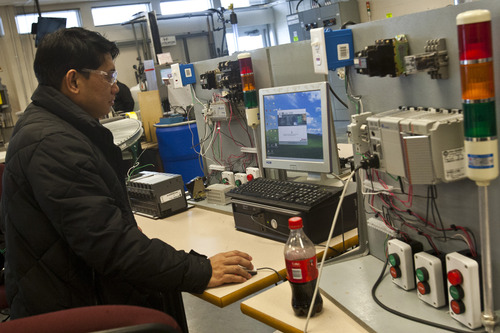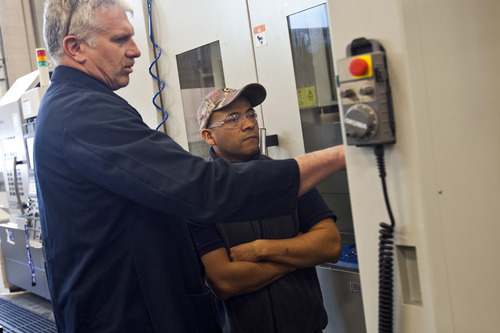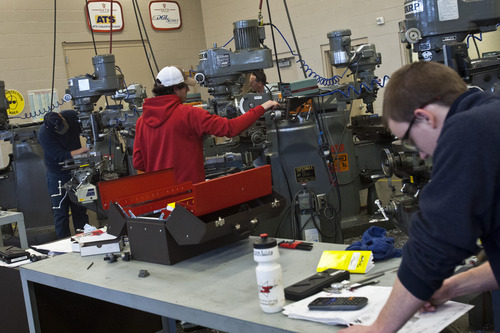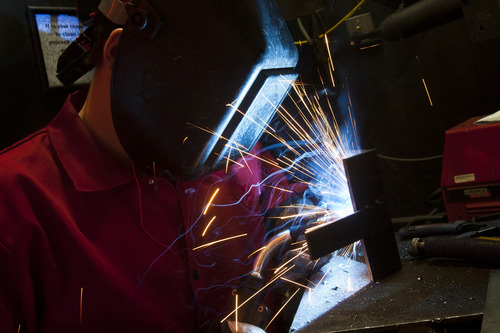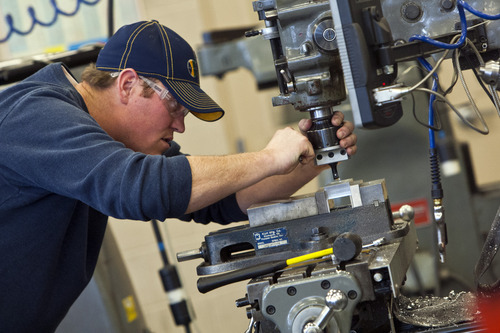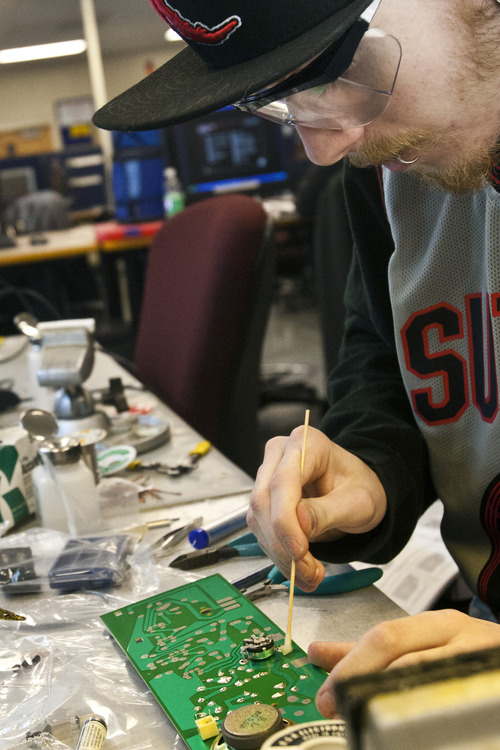This is an archived article that was published on sltrib.com in 2013, and information in the article may be outdated. It is provided only for personal research purposes and may not be reprinted.
As Utah's statewide technical college readies for a growth spurt, a new audit says rising student fees and expenses are now higher than state-controlled tuition costs, and some of those charges are being used for campus expenses rather than programs.
The report comes as the Utah College of Applied Technology — which offers certification, licensing and training in fields from cosmetology to welding — seeks $9.75 million in state funding to expand its programs and triple the number of certificates it awards.
"UCAT is charged by the Legislature to have low tuition, but the statute doesn't really say anything about fees," said President Robert Brems. "In the past few years, we've experienced a downturn in the economy. Our tuition has risen some, but I think the campuses have relied more on fees, so that's something we're going to be addressing."
The legislative audit praises the college for improving program management — in fact, the portion of students placed in jobs last year was 87 percent, the highest in its history. UCAT also offers short accreditation courses,
But it also dings Custom Fit, the college's popular state-subsidized training program for private employers, for serving companies on a first-come-first-served basis rather than on what might be best for economic development.
About 80 percent of UCAT's approximately $58 million budget comes from the Utah Legislature, which mandates that tuition stay low — it's $1.70 a credit hour.
But "low tuition rates shift student costs toward fees, books, and supplies," the audit states.
Fees are decided at each of the school's eight campuses and vary between locations. Of the eight sites, the Southwest Applied Technology College has the highest average fees and expenses, at $4.14 per credit hour, according to the audit.
The fees also vary by program. For example, the $3,000 program fee for the commercial truck driving course at Mountainland Applied Technology College dwarfs its $272 tuition. But pharmacy technician students pay $220 in fees, compared with $765 in tuition, according to a fee schedule in the audit.
"It reflects the way their board has [decided to raise the] necessary revenue to fund the costs we have," Brems said. The audit has "caused us to step back and take a look and see if the cost range is appropriate."
Certification programs take three months to two years to complete, and the system awarded just over 5,800 certificates last year — a number officials hope to triple by the year 2020, when Gov. Gary Herbert aims to have 66 percent of Utah residents with some form of post-secondary education. The $9.75 million leaders are seeking to meet that goal is an 18 percent increase over last year.
UCAT policy calls for employers using the Custom Fit program to pay about 40 percent of the costs. But the college has been charging closer to 65 percent as the number of requests grows. Last year, four of the eight campuses couldn't accommodate all the requests from employers, which range from Home Depot to Anadarko Petroleum Corp.
UCAT should more carefully analyze the requests, the audit said.
"Custom Fit staff should be able to document specific outcomes that demonstrate economic benefit," according to the audit. "The state of Utah has multiple programs that promote economic development; UCAT's Custom Fit program needs to determine the niche it will fill."
Brems said UCAT leaders consider the critique a "very formative audit for a maturing system. We think the recommendations that are made are very reasoned and they're things we're definitely going to work on."


